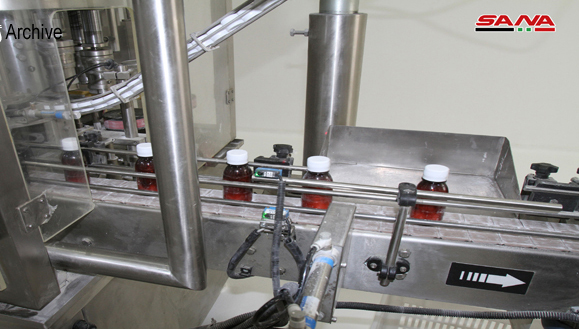The Syrian pharmaceutical industry has surmounted many difficulties, challenges and the unilateral economic measures imposed on the country.
The pharmaceutical industry managed to provide 90 percent of the local market needs and has continued to develop its production and launch new production lines.
Deputy Minister of Health, Dr. Obaida Kattie, told SANA that the number of licensed pharmaceutical factories in Syria reached 96 of which 92 are in service and production.
He said that these factories provide 90 percent of the local market needs.
Chairman of Board of Directors of al-Hassan for Pharmaceutical Industries, Dr. Ahmed al-Hassan, said that preparations are underway to establish a new plant in Adra Industrial City and to develop new production lines after his factory was sabotaged by terrorists in Quneitra.
Director of quality control Dr. Nidal al-Husami at UNIPHARMA said that the company, since its inception in 1994, did not stop working and continued to produce 250 types of pharmaceutical products, pointing out that the main difficulty faced by the company was the difficulty of importing raw materials.
He emphasized the importance of local production to provide medicines at reasonable prices instead of importing them.
In Aleppo, workers at al-Sa’ad Pharmaceutical Industries Company continued to work and produce medicines, despite the terrorist threats to which they were exposed. They supplied the local market with about 170 types of pharmaceutical products, according to Dr. Lina Yazbek.
She said that the company produces various pharmaceutical products and has a license to produce more than 60 types since the beginning of the crisis.
This article was edited by The Syrian Observer. The Syrian Observer has not verified the content of this story. Responsibility for the information and views set out in this article lies entirely with the author.


